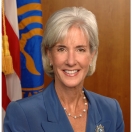
Ed note: This is cross posted from the Huffington Post
We celebrate Black History Month against the backdrop of some tremendous progress, but also some very significant challenges.
As we join with President Obama in making 2014 a Year of Action, I want to take this opportunity to invite you join in a Google Hangout on Wednesday, February 5 at 3pm to discuss our progress and our challenges as they relate to health and human services in the African American community. I'll be joined by Shavon Arline, the National Health Director for the NAACP, as well as Justin from Tampa, a 28-year-old from Tampa who is getting covered through the Health Insurance Marketplace for only $15 a month.
-- Click here to see Justin's story.
-- And click here to sign up or learn more about the hangout.
Because of the Affordable Care Act, millions of Americans like Justin are obtaining quality affordable health care coverage - many for the first time. What's more: 7.3 million African Americans with private insurance now have access to preventive services like cholesterol screenings, mammograms, and flu shots with no out-of-pocket expenses. 4.5 million elderly and disabled African Americans who receive coverage from Medicare have the right to things like an annual wellness visit with a personalized prevention plan. And more than 500,000 young African American adults have gained coverage because the new health care law allows them to stay on their parents' plan until their 26th birthday.
Yet, we still face shocking - and unacceptable - health disparities. African Americans are 55% more likely to be uninsured than white Americans. African Americans are twice as likely to be diagnosed with diabetes, and 40% more likely to have high blood pressure. And the infant mortality rate among African Americans is more than twice that of non-Hispanic whites.
"Of all forms of injustice," Dr. Martin Luther King, Jr. once told the Medical Committee for Human Rights, "injustice in health care is the most shocking and inhumane."
As a country, we pay dearly for these disparities. We pay in the heartbreak of the lives we have lost. And we pay in a loss of opportunity and freedom for so many of our fellow Americans.
You see, without the opportunity to live a healthy life, there is no opportunity to live the American dream or participate fully in our communities. Without the freedom which comes from having access to quality health care, there is no freedom to reach our full potential in the workforce or watch our kids or grandkids grow up. Without the security of health insurance, there is no economic security for middle-class families, and for so many other families working their way into the middle class.
Thanks to President Obama's leadership we have very real reasons for optimism that we can do something about these disparities. An estimated 4.2 million uninsured African Americans may be eligible for financial assistance to help pay for the costs of their new coverage on the Marketplace. What's more, if every state were to expand Medicaid, 95 percent of uninsured African Americans would be eligible for assistance with a Marketplace plan, Medicaid, or CHIP.
I hope you'll join us on Wednesday.
And, let's work together to answer President Obama's call for every American who knows someone without health insurance to help them get covered by March 31. You can shop for plans and enroll online at HealthCare.gov, by phone at 1-800-318-2596, by mail, or directly through an issuer, agent or broker. You can also get in person help at https://localhelp.healthcare.gov/
Kathleen Sebelius is Secretary of the Department of Health and Human Services


